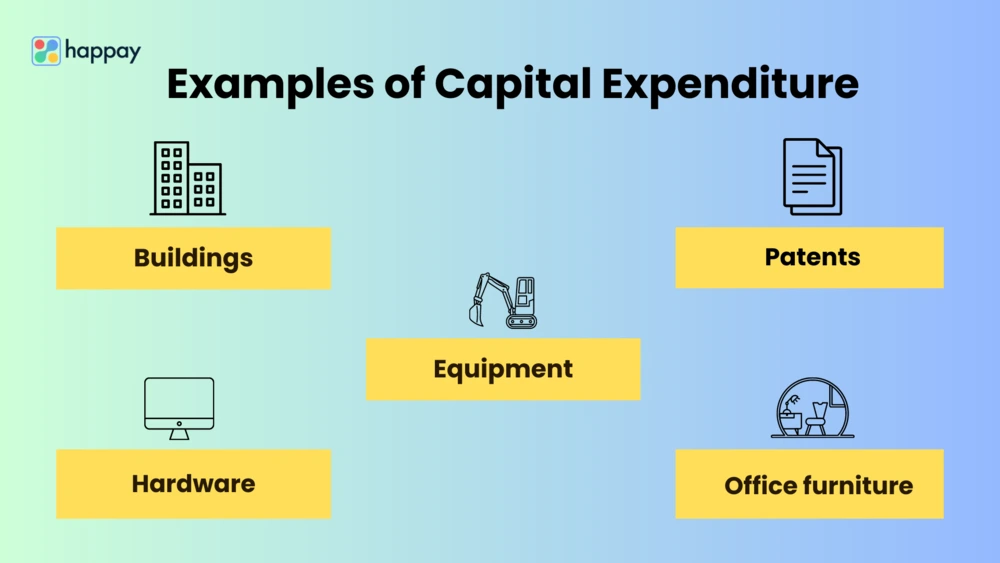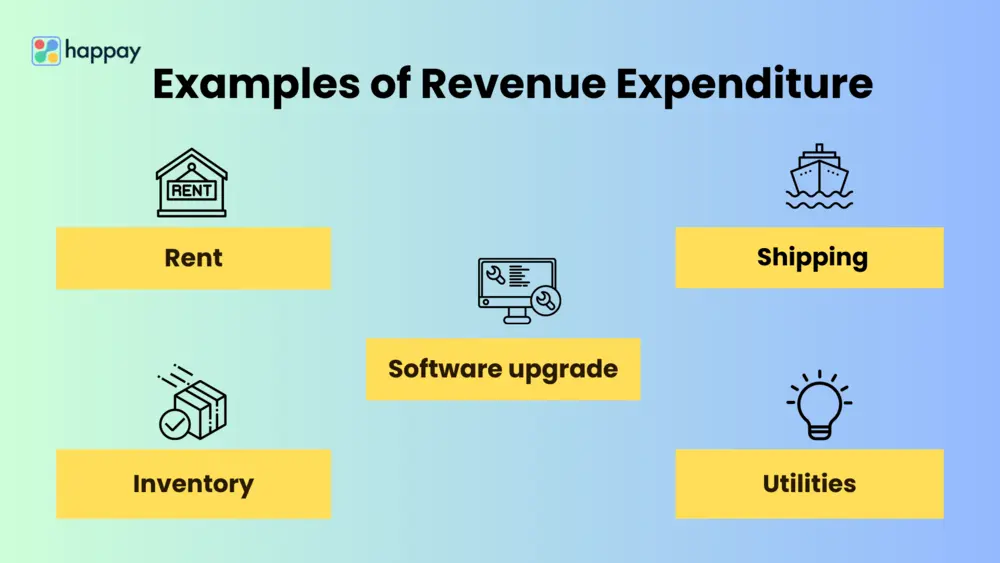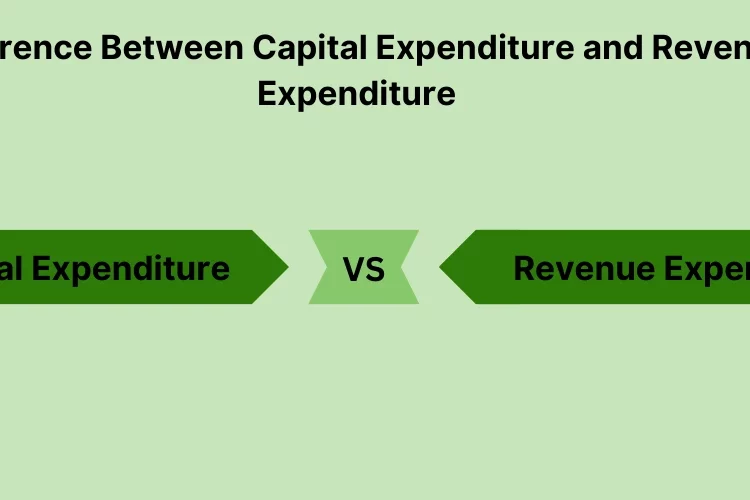Introduction
Capital expenditure refers to the costs incurred in acquiring or improving long-term assets, while revenue expenditure refers to the costs associated with running the business. Both are crucial to understand as they have different accounting treatments, affect financial statements differently, and impact the long-term financial health of an organization in distinct ways.
In this blog, we will understand the difference between the two kinds of expenses and learn how to manage them in the best possible way.
Importance of understanding the difference between capital expenditure and revenue expenditure
It is essential to differentiate between capital expenditure and revenue expenditure as they have different accounting treatments, affect financial statements differently, and impact the long-term financial health of an organization in distinct ways. Misclassification of expenditures can lead to incorrect financial statements and misinterpretation of financial performance. Therefore, a clear understanding of these concepts is critical for sound financial management.
Quick Read: 10 Best Financial Management Tools
What is capital expenditure and revenue expenditure?
Definitions of capital expenditure
Capital expenditure (CapEx) refers to the amount spent on acquiring, improving, or maintaining long-term assets, such as property, plant, and equipment, that will generate benefits for the company for more than one accounting period. CapEx is capitalized on the balance sheet and depreciated over its useful life.
Definitions of revenue expenditure
Revenue expenditure (sometimes known as OpEx) refers to the cost incurred in the day-to-day operations of the business, such as salaries, rent, utilities, and supplies. Revenue expenditure is expensed on the income statement and reduces the company’s taxable income in the current accounting period.
Quick Read: Capital Investment: Meaning, Types, How it Works & Examples
Importance of capital expenditure and revenue expenditure
Importance of capital expenditure
The importance of capital expenditure lies in the fact that it involves the purchase, improvement, or maintenance of long-term assets that will generate benefits for the company for many years to come. Capital expenses can have a significant impact on the company’s financial statements, like the cash flow statement, balance sheet, and income statement. Properly accounting for CapEx ensures accurate financial reporting and a better understanding of the company’s long-term financial health.
- Helps in the growth and expansion of the business.
- Improves efficiency and productivity.
- Increases the value of the company’s assets.
Importance of revenue expenditure
The importance of revenue expenditure lies in the fact that it involves the day-to-day costs of running a business. Revenue expenditures are necessary for the company’s operations and can affect the company’s profitability and cash flow in the short term. Properly accounting for revenue expenses ensures accurate financial reporting and a better understanding of the company’s short-term financial health.
- Keeps the business running on a daily basis.
- Helps in maintaining the quality of the product or service.
- Enables the business to stay competitive.
Quick Read: Cash Flow Forecasting: Definition, Advantages, and How to Ace It
Types of capital expenditure and revenue expenditure
Types of capital expenditure
The types of capital expenditure can vary depending on the industry and the company’s needs. However, some common examples of CapEx include purchasing property, plant, and equipment (PP&E), research and development, and software development.
- Acquisition of fixed assets (land, buildings, machinery, etc.)
- Improvement of fixed assets (renovation, repair, upgrade, etc.)
- Development of new products or services.
Types of revenue expenditure
The types of revenue expenditure can vary depending on the industry and the company’s needs. However, some common examples of revenue expense include salaries and wages, rent, utilities, advertising, and office supplies.
- Costs of raw materials and inventory.
- Employee wages and salaries.
- Insurance, rent, and utilities.
Quick Read: 6 Best Cash Flow Management Software
Accounting Treatment
Capital expenditure accounting treatment
Capital expenditures are capitalized, which means they are recorded as assets on the balance sheet and depreciated over their useful lives. The depreciation expense is recognized on the income statement and reduces the net income, but it does not affect cash flows.
Revenue expenditure accounting treatment
Revenue expenditures are expensed, which means they are stated on the income statement in the time period they are incurred. reduces the net income, and it affects the cash flows of the company in the current period.
Explanation of how capital expenditure is recorded on a company’s balance sheet?
Capital expenditures are recorded on a company’s balance sheet as long-term assets. The cost of the asset is capitalized, which means it is added to the value of the asset and depreciated over the useful life of the asset. The depreciation expense is recorded on the company’s income statement and reduces the net income, but it does not affect cash flows. When the asset is sold or disposed of, the accumulated depreciation is subtracted from the cost of the asset, and any gain or loss is recorded on the income statement.
Quick Read: Balance Sheet: Meaning, Types, Components & Examples
Explanation of how revenue expenditure is recorded on a company’s income statement?
Revenue expenditures are recorded on a company’s income statement as expenses in the period they are incurred. These expenses are deducted from the revenue generated during the period to calculate the net income. Revenue expenditures affect cash flows in the current period, as they are paid in cash or on credit during the period they are incurred.
Examples of Capital Expenditure and Revenue Expenditure
Examples of Capital Expenditure
Capital expenditures typically involve the purchase or improvement of long-term assets that provide benefits to the company over several years.
Some common examples of capital expenditures include:

- Purchase of land, buildings, or equipment
- Construction of a new building or addition to an existing building
- Major renovations or improvements to an existing building
- Purchase of vehicles or machinery
Examples of Revenue Expenditure
Revenue expenditures are generally ongoing expenses that are necessary for the day-to-day operations of a business.
Some common examples of revenue expenditures include:

- Salaries and wages for employees
- Rent, utilities, and other regular bills
- Marketing and advertising expenses
- Office supplies and other consumables
Quick Read: Cost of Capital: What is it, Types, Formula & How to calculate it?
Key Differences between Capital Expenditure and Revenue Expenditure
Capital Expenditure |
Revenue Expenditure |
|
|
Purpose |
Purchase or improvement of long-term assets |
Day-to-day costs of running a business |
|
Accounting Treatment |
Recorded as an asset on the balance sheet and depreciated over the useful life of the asset |
Recorded as an expense on the income statement in the period it is incurred |
|
Impact on Financial Statements |
Affects balance sheet, income statement, and cash flow statement |
Can affect profitability and cash flow in the short term |
|
Benefit to Company |
Benefits the company over the long term |
Benefits the company in the short term |
|
Impact on Cash Flows |
Affects cash flows in the period it is incurred |
Affects cash flows in the current period |
Quick Read: CapEx vs. OpEx: A Guide to Understanding the Differences
Importance of Properly Distinguishing between Capital Expenditure and Revenue Expenditure
Properly distinguishing between capital expenditures and revenue expenditures is critical for several reasons:
Impact on a Company’s Profitability and Financial Health
Capital expenditures can have a robust impact on a company’s financial statements and can affect its profitability and financial health in the long term. On the other hand, revenue expenditures typically affect a company’s profitability and cash flow in the short term.
Implications for Tax Reporting and Compliance
Capital expenditures are typically treated differently for tax purposes than revenue expenditures. It’s important to properly categorize expenditures to comply with tax laws and regulations and minimize the tax liability.
Importance of Accurately Tracking and Managing Both Types of Expenditures
Accurate tracking and management of both capital and revenue expenditures is essential for effective budgeting, forecasting, and decision-making. It can help a company optimize its spending and improve its overall financial performance.
Conclusion
Distinguishing between capital and revenue expenditures is crucial for maintaining accurate financial records and making informed business decisions. By understanding the differences between these two types of expenditures and properly categorizing them, companies can optimize their spending and improve their financial health over the long term.
FAQs
Revenue income is the income generated from the day-to-day operations of a business, such as sales revenue, service revenue, and interest income. Capital income, on the other hand, is income generated from non-operational sources, such as the sale of assets or investments.
Revenue expenditure is the ongoing expenses required to maintain the day-to-day operations of a business, while capital expenditure is the purchase or improvement of long-term assets that provide benefits to the company over several years. Deferred revenue expenditure refers to expenses that are incurred in the current period but will be charged to future periods.
Capital receipts are the receipts that are generated from non-operational sources, such as the sale of assets or investments, while revenue receipts are generated from the day-to-day operations of a business, such as sales revenue, service revenue, and interest income. Examples of capital receipts include proceeds from the sale of property or equipment, while examples of revenue receipts include cash sales or accounts receivable.
Revenue expenditure and capital expenditure are not taxes themselves but refer to two types of expenditures that a business may incur. Revenue expenditure refers to the ongoing expenses required to maintain the day-to-day operations of a business, while capital expenditure is the purchase or improvement of long-term assets that provide benefits to the company over several years. These expenditures can have different tax implications and treatment under tax laws and regulations.
Revenue expenditure and operating expenses (OpEx) are not exactly the same, but they are related. Revenue expenditure refers to the ongoing expenses required to maintain the day-to-day operations of a business, such as the cost of goods sold, wages and salaries, rent, and utilities.
Operating expenses (OpEx) are expenses that are incurred to support the day-to-day operations of a business, including both revenue and non-revenue expenditures. Therefore, includes revenue expenditure as well as other expenses like selling and marketing expenses, research and development expenses, and general and administrative expenses.







